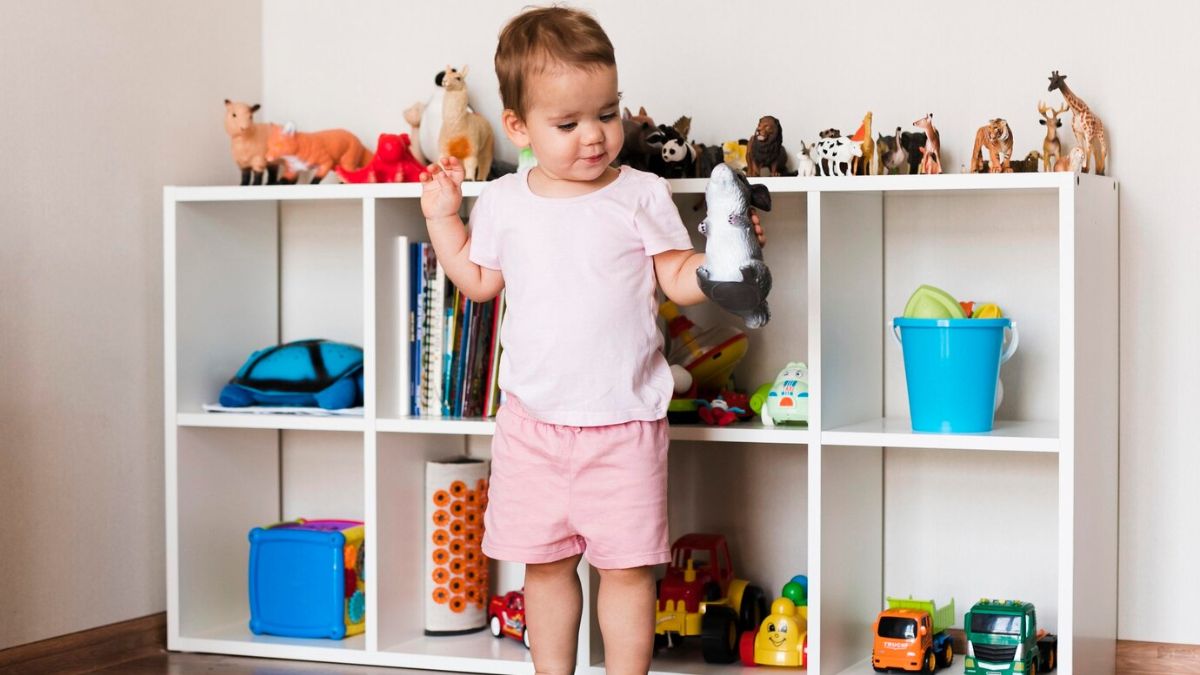
Becoming a parent for the first time is both an exciting and overwhelming experience. From sleepless nights to those heart-melting first smiles, the journey is filled with moments of joy and challenges. This guide will provide you with practical parenting tips to help navigate the first year with confidence and ease.
1. Preparing for Parenthood Before the Baby Arrives
Understanding the Basics of Newborn Care
Before your baby arrives, it’s helpful to learn the essentials of newborn care. Take a parenting class, read reputable books, or consult with experienced parents. Focus on the basics like feeding, burping, bathing, and understanding sleep patterns.
Setting Up the Nursery
When setting up your nursery, focus on safety and functionality. Must-have items include a crib, changing table, diaper pail, and a comfortable chair for feeding. Items like baby monitors, blackout curtains, and white noise machines can be helpful but aren’t essential.
Building a Support System
Parenting is easier when you have a strong support system. Involve family and friends early on and don’t hesitate to ask for help. Consider joining local parenting groups or online communities for additional support.
2. The First Few Weeks with Your Baby
Establishing a Routine
Newborns don’t follow set schedules, but you can start observing their patterns for feeding and sleeping. Flexibility is key during the first few weeks as you and your baby adjust to each other.
Tips for Managing Sleep Deprivation
Sleep deprivation is a common challenge for new parents. Try to sleep when the baby sleeps and take shifts with your partner to ensure you’re both getting rest. Don’t be afraid to lean on your support system for extra help.
Handling Baby’s Crying and Soothing Techniques
Babies cry to communicate their needs. Common soothing methods include rocking, swaddling, offering a pacifier, or gently shushing. Over time, you’ll learn to recognize what your baby needs.
3. Feeding Your Baby
Breastfeeding Basics
Breastfeeding can be challenging at first, but practice and support make a difference. Focus on getting a good latch, feeding on demand, and staying hydrated. Don’t hesitate to reach out to a lactation consultant for guidance.
Formula Feeding Tips
If you’re using formula, follow the preparation instructions carefully to ensure your baby is getting the right nutrients. Keep feeding equipment clean and adhere to feeding schedules based on your baby’s age.
Introducing Solid Foods (6 Months and Beyond)
At around six months, most babies are ready for solid foods. Signs of readiness include sitting up with support and showing interest in what you’re eating. Start with single-ingredient purees and gradually introduce new foods.
4. Understanding Baby’s Development Milestones
Cognitive and Motor Skills
Your baby’s first year is filled with rapid development. Watch for milestones like smiling, rolling over, sitting up, and crawling. Remember, every baby develops at their own pace, so don’t stress if milestones are slightly delayed.
Encouraging Development Through Play
Playtime is essential for your baby’s growth. Engage in activities like tummy time, singing, and reading to stimulate their cognitive and motor skills.
When to Consult a Pediatrician
If you notice significant delays in development or unusual behavior, consult your pediatrician for guidance. Early intervention is key to addressing potential issues.
5. Self-Care for New Parents
Why Self-Care is Essential
Taking care of yourself is just as important as caring for your baby. Prioritize rest, eat nutritious meals, and find moments to relax. A well-rested parent is better equipped to handle the demands of a newborn.
Sharing Responsibilities
Divide parenting responsibilities with your partner to avoid burnout. Establish a plan for chores, nighttime feedings, and other tasks.
Reaching Out for Help
Don’t hesitate to ask for help from family, friends, or professionals. Whether it’s a babysitter or a therapist, having support can make a world of difference.
6. Building a Strong Parent-Child Bond
The Importance of Skin-to-Skin Contact
Skin-to-skin contact is crucial for newborns. It helps regulate their body temperature, promotes bonding, and encourages breastfeeding.
Reading and Singing to Your Baby
Reading and singing are excellent ways to bond and support your baby’s language development. Start with simple board books and nursery rhymes.
Practicing Patience and Positivity
Parenting is a learning experience. Practice patience, and don’t be too hard on yourself when things don’t go as planned. Celebrate small victories and stay positive.
7. Managing Common Parenting Challenges
Dealing with Sleep Regressions
Sleep regressions are temporary phases where your baby’s sleep patterns may change. Stick to a consistent bedtime routine and offer comfort during these times.
Coping with Parental Guilt
Parental guilt is common, but it’s important to let go of unrealistic expectations. Focus on doing your best and remember that no parent is perfect.
Navigating Conflicting Parenting Advice
You’ll receive plenty of advice from family, friends, and even strangers. While it’s good to listen, trust your instincts and rely on credible sources for information.
8. Financial Planning for New Parents
Budgeting for Baby Essentials
Create a budget for essentials like diapers, formula, and clothing. Consider buying second-hand items to save money.
Planning for Childcare Costs
Research childcare options early and compare costs. Look into tax credits or employer benefits that may help offset expenses.
Setting Up a College Fund Early
Starting a college savings plan, such as a 529 account, can help you prepare for your child’s future education expenses.
Conclusion
Parenting is a journey filled with ups and downs, but it’s also one of the most rewarding experiences. By preparing ahead, seeking support, and focusing on bonding with your baby, you’ll create a strong foundation for your child’s growth and development. Embrace the learning process, and remember—you’ve got this!
FAQs
1. What is the most important parenting tip for new parents?
Focus on building a strong bond with your baby and don’t hesitate to seek support when needed.
2. How do I manage stress as a new parent?
Prioritize self-care, share responsibilities, and reach out for help when necessary.
3. What are the best ways to bond with my newborn?
Skin-to-skin contact, reading, singing, and spending quality time together are great ways to bond.
4. How can I handle advice from family and friends that I don’t agree with?
Thank them for their input but trust your instincts and consult credible sources if you’re unsure.
5. When should I start babyproofing my home?
Begin babyproofing as soon as your baby starts crawling, typically around six to nine months.




